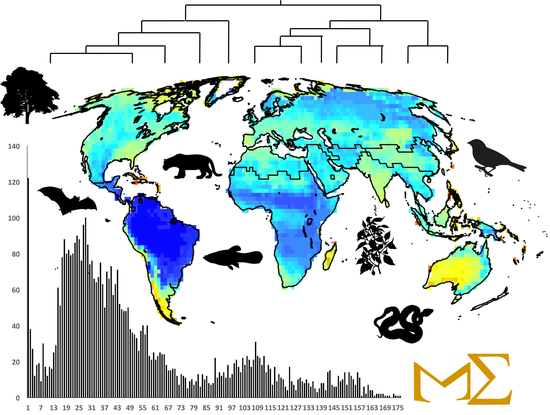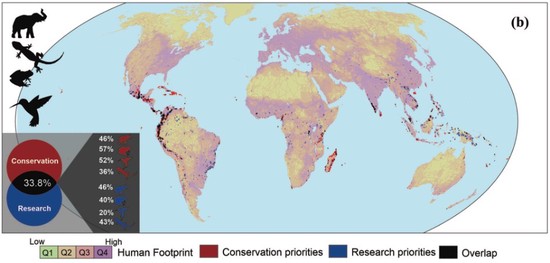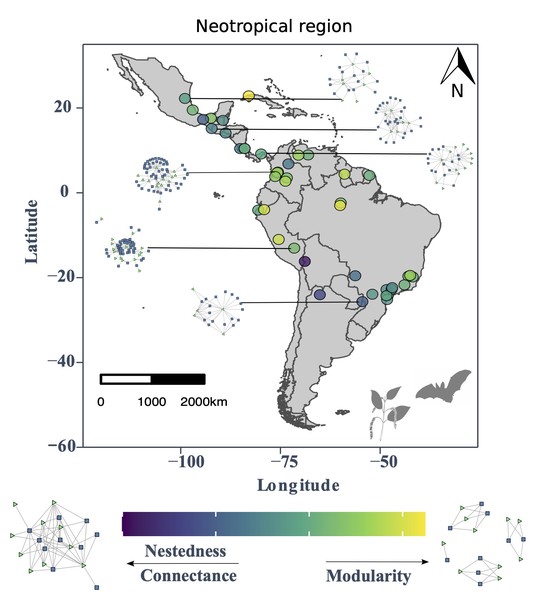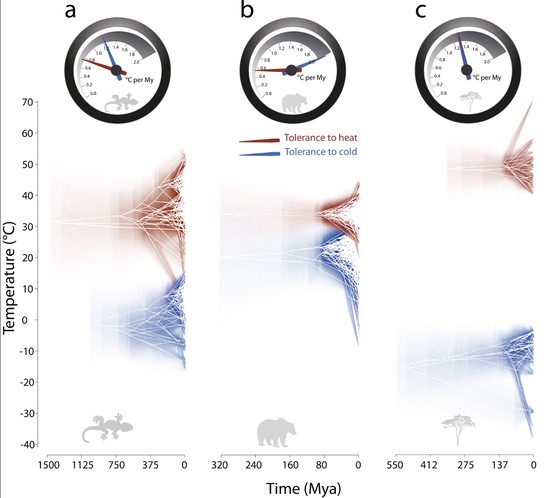Our research interests comprise a broad array of topics related to the fields of macroecology, macroevolution, biogeography, community and theoretical ecology, ecophylogenetics, phylogenetic comparative methods and conservation biology. We are particularly interested in studying geographic patterns of biodiversity and the structure of ecological communities as well as understanding the causes that originate, maintain and alter such patterns. We focus mainly on vertebrates, but also work with other taxa including insects and plants. Currently, we integrate ecological and evolutionary approaches to study biogeographic and phylogenetic patterns, their relationship with the environment and the application of such studies to informed conservation assessments and actions.
Interests
- Macroecology
- Biogeography
- Macroevolution
- Conservation Biogeography
- Spatial statistics
- Phylogenetic Comparative Methods



